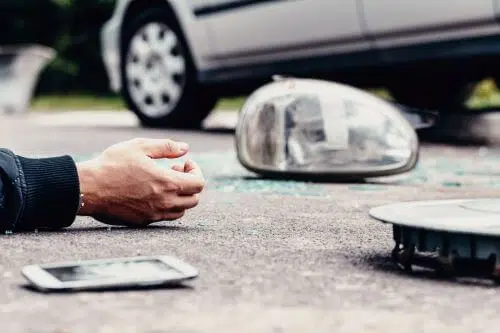
If you’ve been in a motorcycle accident, you may struggle to recover physically and mentally. It might take weeks or months before you’re able to return to work, and in the meantime, medical bills could be piling up. When this happens, you need qualified legal advice from a motorcycle accident lawyer to help you navigate the challenges of getting compensation for your injuries.
Attorney Ali Awad founded the CEO Lawyer Personal Injury Law Firm to help people get the compensation they deserve after an injury and quickly turned it into the fastest-growing law firm in the country. When he’s not fighting for clients in the courtroom or negotiating with insurance companies, Mr. Awad also offers accessible legal knowledge to more than a million followers on social media. When you need help after a motorcycle accident, the CEO Lawyer Personal Injury Law Firm is available for a free, no-obligation consultation.
What Are the Risk Factors for Ptsd After a Motorcycle Accident?
Although anyone can develop PTSD, several factors increase the likelihood of it happening after a bad motorcycle accident:
- Women are more likely to develop PTSD after trauma.
- Having a history of depression also increases risk.
- Another contributing factor is a history of other violent injuries, assault, or trauma.
- If there was a death in the crash, particularly the death of a family member, there is an increased risk of PTSD.
What are the Symptoms of PTSD?
Not everyone will have the same symptoms, but diagnosis is usually based on the patient having at least one or two symptoms from each of four categories: re-experiencing, avoidance, arousal and reactivity, and cognition and mood. Here are some common ways these symptoms may appear:
- Flashbacks or repeatedly remembering or re-experiencing the accident.
- Nightmares, difficulty sleeping, or insomnia.
- Disturbing thoughts.
- Avoiding things that remind you of the accident, which may include people, places, objects, or experiences.
- Avoiding talking about the accident.
- Feeling anxious or tense.
- Having a strong or sensitive “startle” response.
- Outbursts of temper or other mood changes.
- Difficulties with memory, concentration, or cognition.
- Losing interest in activities you used to enjoy.
- Negative thoughts about yourself or life in general.
- Feeling guilt or responsibility for the accident even if it wasn’t your fault.
Getting Treatment for PTSD After a Motorcycle Accident
If you’re experiencing any of the above symptoms after an accident, you don’t have to continue to suffer. Talk with your doctor about getting evaluated for PTSD. This usually begins with a physical exam to ensure you don’t have any physical issues that could be causing your difficulties – head injuries, for example, can cause some of the same symptoms as PTSD. If physical injuries have been ruled out, you should be evaluated by a mental health professional, who will ask you a series of questions about your symptoms.
Once you’ve been diagnosed with PTSD, there are several treatment options. Some may work better than others for different people:
- Talk therapy or psychotherapy helps patients process their feelings and learn coping mechanisms for dealing with their symptoms. This may include cognitive therapy to help change thought patterns and exposure therapy to help you safely address anything you’ve been avoiding due to the accident.
- Group therapy or support groups may be an additional source of help.
- Medications for depression, anxiety, or sleep problems may be helpful in some cases.
- Sometimes other therapies like Eye Motion Desensitization and Reprocessing (EMDR) are beneficial.
Some people may struggle with paying for treatment, especially if their physical or mental condition has left them unable to work after an accident. This can create a difficult situation where they need help but cannot access it or complete treatment. For example, some health insurance policies may only pay for a certain number of therapy sessions each year. Talk therapy can take time to be effective, and some patients find that just when they’re starting to get results, their insurance coverage abruptly ends.
Taking steps to protect your legal rights after a motorcycle accident can help ensure you have the resources to treat your physical and mental injuries. PTSD is considered a damage in personal injury situations, the same as a broken bone or other physical injury. If you’ve been hurt in a bike crash due to another driver’s negligence, you deserve compensation for your injuries so you can focus on your recovery.
If you or a loved one have been hurt in a motorcycle collision, a motorcycle injury lawyer can help by explaining your options and assisting you with the process moving forward. In many cases, we can secure a settlement from the responsible party’s insurance company without ever going to court. It’s vital to consult an attorney if the other driver’s insurance carrier has already made you a settlement offer – frequently, these are much lower than the claim is worth. Your attorney will help you understand the extent of your damages and the appropriate compensation amount. They will negotiate with the other party or fight for you in court if needed.
Call the CEO Lawyer Personal Injury Law Firm
If you have questions or concerns about your motorcycle accident, please contact the CEO Lawyer Personal Injury Law Firm for a free consultation. There is no obligation, and we’ll be happy to answer your questions about your situation. If we take your case, we have a no-win, no-fee guarantee, so there is never any up-front cost.



